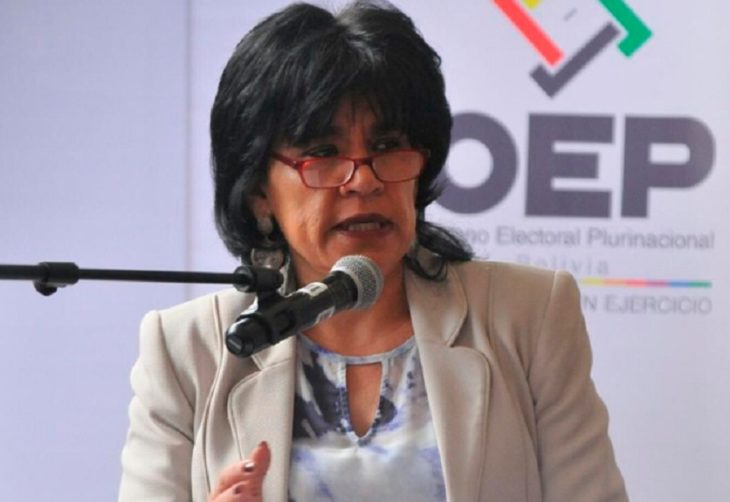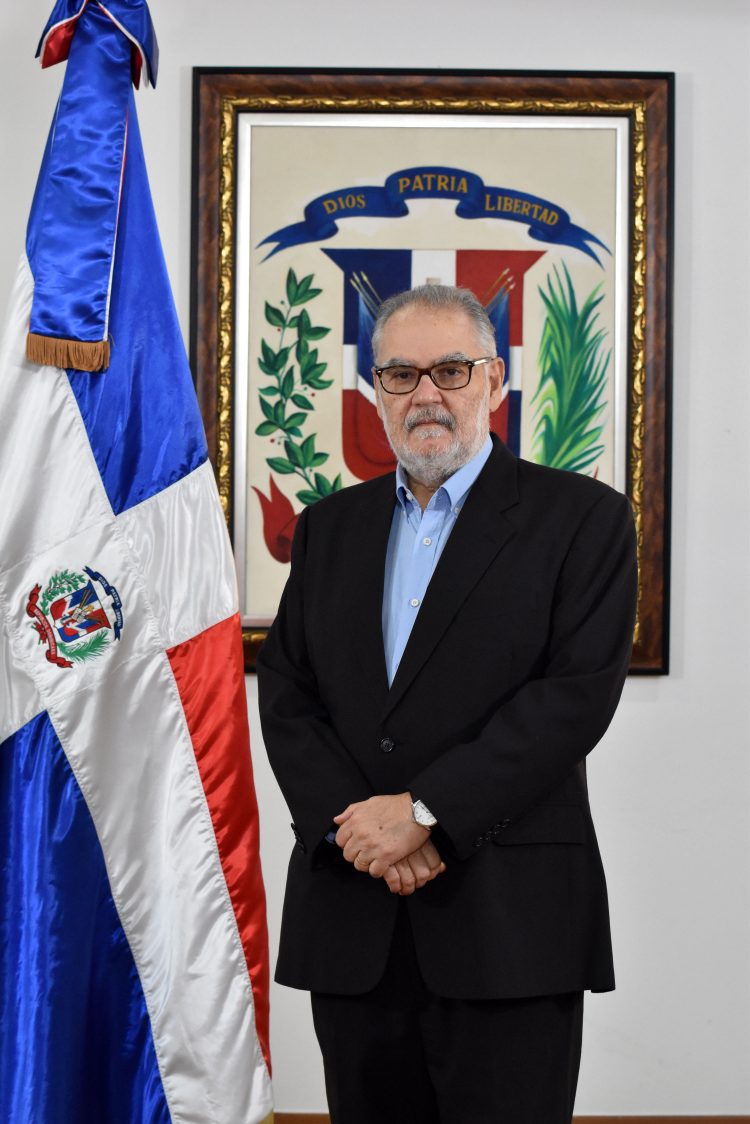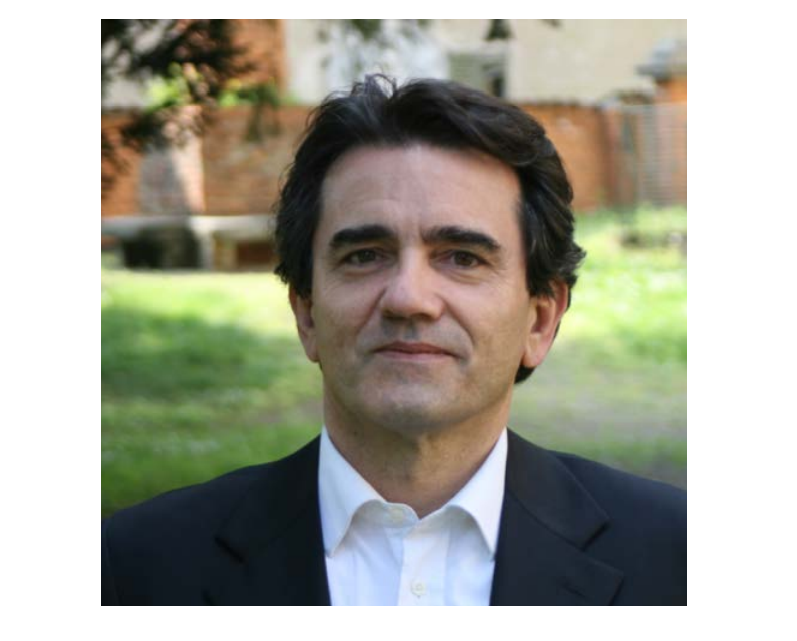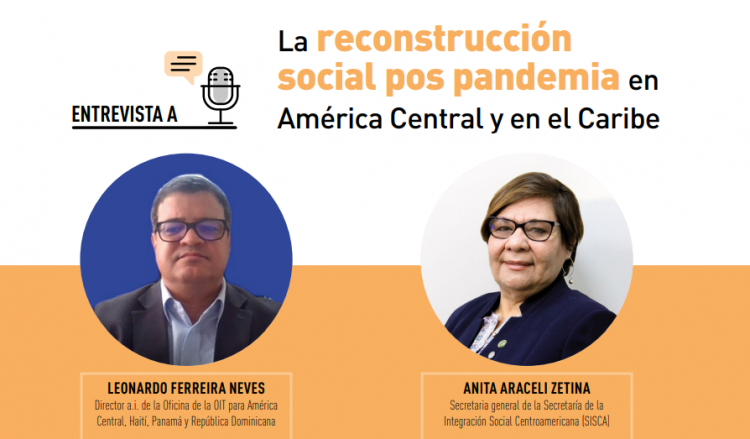Interview with Katia Uriona Gamarra, former president of the Supreme Electoral Tribunal of Bolivia and former vice president of the Association of Electoral Magistrates of the Americas - AMEA, who explains the learning achieved and the current state of public policies for political equality in the region, her country, Bolivia, being one of those that have set the standard in this area.

What have the main lessons of the women’s movement been regarding participation and representation in democracy?
As a base, we started by working and expressing our demands so that they leave the space of our organisational life, and placing them in the public-political space. This is clearly linked to the notion of organised-mobilised action. Secondly, we learned that it is not enough to be women to express ourselves, in other words that it is important for women’s empowerment and recognition to include a gender perspective. And thirdly, we proposed a public agenda regarding the state’s institutionality. States are normally external or disjointed authorities, far removed from the demands, needs and responses that should be generated with respect to improving living conditions for the population as a whole and in particular for women. Without the inclusion of a gender perspective, we could say that inequality is not recognised. It is us women who bring this inequality into public debate and establish demands to the state so that specific and/or different regulatory frameworks and public policies can be generated.
The shortcomings of democracy itself are based on the fact that it leaves out half of the population: women. If the state is oblivious to recognising half of the population and also to recognising this inequality, there is great remoteness in the very state’s effective response as the guarantor of rights. The first thing, then, is to recognise that both the democratic system and the spheres of representation and the definition of public policies have been formulated in the absence of an egalitarian, inclusive view that clearly recognises gender inequalities. Thus, the trust deficit will again be tackled through the organised and mobilised action of women. Neither the States nor the institutions are open per se to generating processes of participation and inclusion; we therefore know that it will be the social movements themselves, the women’s or feminist organisations, who demand concrete actions from the State and make it open up. An initial element includes enabling collective political action, rallied and organised by women. We women are those who will contribute to speeding up the processes through our political rallying. This is a value to highlight: the strength and vitality of feminist, women’s and social movements must be permanently heightened.
Taking into account that ten years have passed since the approval of the Constituent Assembly in Bolivia, what milestones has this process generated? Its achievements; what has been learned and what remains to be done? Where do the barriers persist regarding women in the public-political sphere?
As a women’s movement, we set out to be participants in this reconfiguration of the state that the creation of the Constituent Assembly proposed, and to be part of the social pact that the country was building. For roughly three years, more than 20,000 women nationwide, combined in the Movement “Women Present in History”, generated a rallying action expressed by plurality, diversity, different identities, origins and belongings. We built a common agenda. This movement of reflection, but also of construction of a new democratic scenario was carried out with some very clear fundamental ideas: defining what it meant to be a political actor and being part of that social pact; building alliances with other movements; drawing up a transformative political agenda with a gender focus, in coordination with women in decision-making positions. I believe that these four elements are fundamental and that they could be applicable in different contexts. The importance of the last point must be stressed: that women hold decision-making positions. Because they can become the first hub to raise the demands of other women and stimulate the discussion of our agendas in the generation of public policies. As yet, although there are men committed to equality, they haven’t taken up women’s transformative agendas and incorporated them into their own. This route meets very strong resistance not only in terms of agenda, but also because of the difficulty of understanding that equality is everyone’s political and social responsibility.
Even in countries where equality in political representation has been achieved, such as in Bolivia, the problem that arises is that institutions have not changed their male dominated practices, customs and behaviours, and resistance to the entry of women persists. When they enter these spaces, they experience the harshest resistance: violence and political harassment, which have become mechanisms of control, obstruction and even expulsion of women. Public institutions must change these traditionally discriminatory practices. Otherwise, women will leave public positions and equality policies will not last; they will not be sustainable and the policies and agreements reached run the risk of stagnating or repealing the conditions for broader transformations for the modification of asymmetric power relations between women and men.
What is the state of political equality in the rest of Latin America? What progress has there been in the region?
Latin America is the region in the world with the greatest progress in equal representation in the legislative fields: there are eight countries; Bolivia, Mexico, Costa Rica, Ecuador, Nicaragua, Honduras and Panama, and as of October 2019 equality legislation will be applied in the Argentinian elections. In five of which clear mechanisms have been applied in the law regarding horizontal and vertical equality. This means that the inclusion of women in electoral lists is guaranteed with a criterion of equality and alternation: sequentially and correlatively a woman is included, then a man and another woman… This does not happen in Honduras or Panama, which do have equality regulations, but do not have mandatory alternation, so women are placed at the bottom of the list. In the future, it is proposed that the countries of the region should change from shares to equality legislation. This is the quantitative leap that is being considered: that it be women themselves, along with men, who democratise the political and democratic systems in our countries. We are not only discussing what specific agendas we can give women from the perspective of gender and recognition of rights, but we are also bringing this notion of inclusion, enlargement and equality, so much needed in our states, into the democratic discussion. In the region, the horizon is proposed of achieving equal representation and advancing towards equal Democracy, as a proposal that contributes to the construction of fairer, more egalitarian and democratic societies, for which it is possible to affirm that the more feminist democracy is, the more democratic it will be.
How do you think we can make these inclusive policies sustainable and stable, regardless of changes in governments, authorities, or changes in political tendencies?
At least four priority elements are needed, all related to a democratising perspective: Firstly: we need to democratise the public institutions. Women must enter the public administration on equal terms and the conditions must be met for conducting policies with a gender perspective, in institutions that have changed their male dominated practices and behaviours. Secondly: we must democratise the political parties and organisations. Women are making transformative proposals, but authorities such as political parties and social organisations still face the challenge of broadening their internal democracy mechanisms, and this generates tension in the crisis of representation and the notion of trust and cohesion that must be generated between citizens and those who represent them. Thirdly: we must democratise the system of representation, which implies the right to choose, the right to be elected and a new element, which is the right to remain in office. Fourthly and lastly, it is also essential to democratise responsibilities in the private sphere, and this implies co-responsibility in domestic work and sharing decisions in this sphere, as well as the implementation of public care policies.
We have already talked about equality at the regional level. What other issues are on the agenda in Latin America, but still generate resistance? How do you see the role of cooperation?
Analysing the different regional agendas, they have common elements, which, despite the diversity and specificities in each of the countries, are supported by different systems of oppression that in most cases generate unequal conditions, discrimination, subordination, violence and poverty. Women’s agendas in the region have been expanding and becoming more complex against this background.
Among some of the common elements, which in turn are reflected in the “Regional Consensus” that governments signed and committed to based on the Beijing action plan, the Convention on the elimination of all forms of discrimination against women (CEDAW) and the Sustainable Development Goals (SDGs), among other international mechanisms.
It will be the movements themselves that propose and follow up on their agendas in dialogue with governments to move forward. The region is also debating the sustainable development agenda, the empowerment of women and girls, the scope of equality of representation and of Equal and Intercultural Democracy, including political, physical and economic autonomy. This is the framework in which states and regional and global integration mechanisms, and cooperation itself must commit to the scope of fairer, more egalitarian and democratic societies, which is a struggle that women are placing in the political agendas; a support that should be focused on strengthening movements, and also on strengthening women who accede to decision-making positions.
Among the issues on the agenda that face the greatest difficulties are those related to the elimination of all forms of violence against women and the increase in cases of femicide, as well as sexual and reproductive rights, precisely because “women’s bodies are taken, raped, violated and control is exercised over their lives.” These are very sensitive issues that generate the breach of women’s rights, which in turn face resistance to change in the patriarchy itself and the toughest resistance in conservative sectors: those who question the supposed “gender ideology”, but also churches and religious fundamentalisms. These are the most difficult nuclei, in which we find more barriers and resistance to moving forward and guaranteeing these rights.



